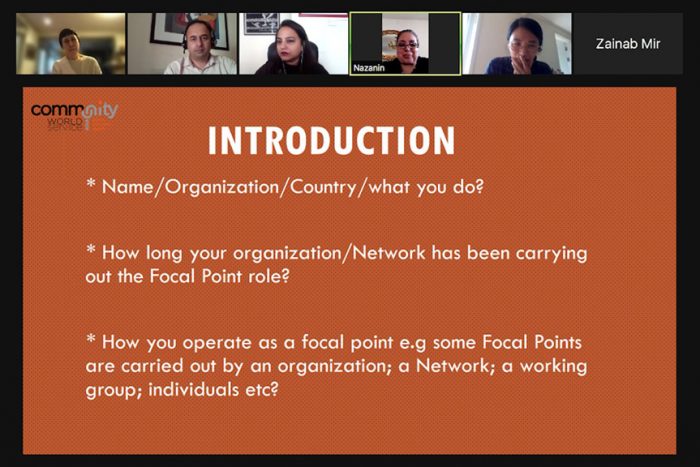Bai lives in Umerkot’s Rajari village with her spouse Ramji. Bai was born with a physical disability and is unable to walk on her own. Ramji is unable to see, and has been declared blind by doctors since he was five years old owing to an eye infection. Bai and Ramji were married to each other by their parents when Bai was 26 and Ramji was 29 years old and now are parents to two children; a son named Veeram and a daughter, Samina.
The couple earned a living through beggary in the neighbourhood and lived in a one-room house offered to them by fellow villagers in Rajari. They would go house to house or wandered in the streets until someone gave them some charity money.
“We have always wanted our children to go to school and make a better life for themselves. Unfortunately, we are unable to give them that right as we barely make ends meet by the money we receive. Our income is not steady as it depends on the charity of others. Our children also beg with us occasionally,” added Bai sadly.
Four years ago, when Veeram turned 16 years, he started working as a farmer at the local agricultural fields. He was would earn an income of PKR 7000 each month (Approx. USD 40). “Veeram is a dedicated and hardworking individual. He despised begging and felt awful whenever he saw his younger sister, Samina, begging on the streets. He was anxious to find work and support his family and stop them from begging,” Bai explained, “We stopped begging as Veeram began to provide a source of money for the family. We were living a very simple and happy life since we didn’t have to rely on begging or on someone else’s generosity for a living.”
Veeram planted cluster beans, mung beans, wild melon, millet, and sesame among other crops. He farmed the crops on a two-acre plot of land he rented from his landlord. The landlord received fifty percent of the produce as rent.
The majority of the union council that Rajari is located, is a rain-fed area, and agriculture is solely reliant on rain showers during the monsoon season, which occurs between July and August every year. Unfortunately, Rajari along with other villages did not receive enough rain this year, and subsequently the agricultural production did not meet expectations. “Veeram was unable to find work in agriculture since it became nearly impossible to harvest without rain water. We had to borrow money from the landowner to make ends meet. Veeram took a loan of PKR 10,000(Approx. USD 57) to buy groceries and cover other household costs.”
Many families in Rajari and surrounding villages were affected by the drought and the locust invasion and were left with no source of livelihood, driving them to poverty and famine. To support these affected communities, Community World Service Asia and its partnersⁱ, provided food packages and millet seeds to 516 households in the area. Each food package contained wheat flour, rice, cooking oil, pulses, sugar, tealeaves, iodized salt, matchbox, and millet. These packages have been developed to alleviate food insecurity among climate change affected communities while also enabling them to self-sustain themselves through agricultural activities.
Bai’s family was identified and selected as a project participant to receive the food package by the Village Management Committeeⁱⁱ. Bai received the food package on October 8th during the distribution activity conducted in Punhoon Bheel village, which is a kilometre away from Bai’s home.
“I was overwhelmed when I heard that our family will be receiving assistance. The food package includes nutritious food items that will last us for a good two months, as we are only four members in the family. At the distribution day, it began to rain. We are more optimistic that we will be able to cultivate the millet seed included in the package, and that my son will be able to find labour in the fields. This support has given us hope when we had no hope left and nowhere to go,” shared Bai.





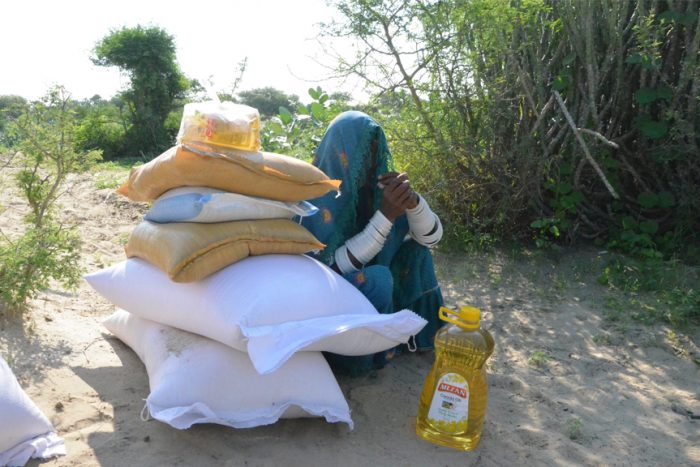
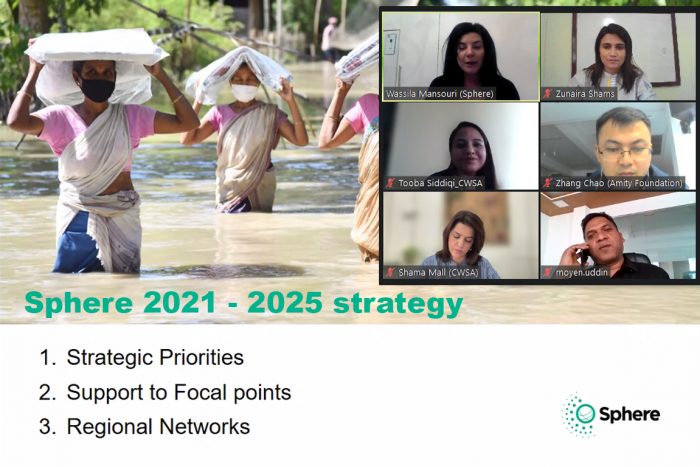
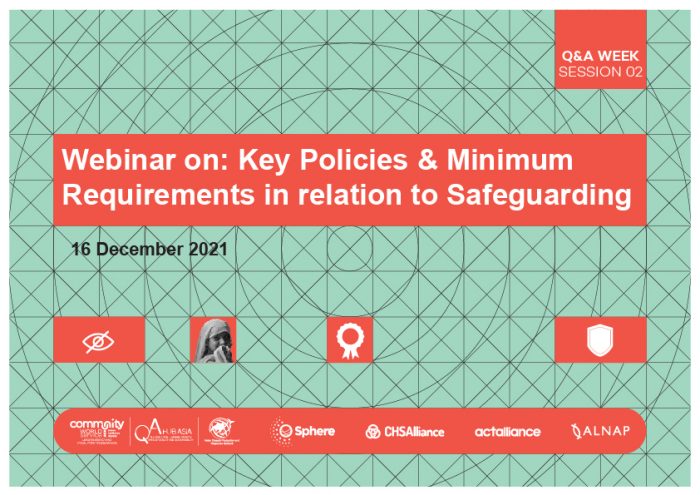
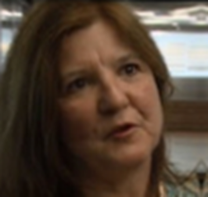
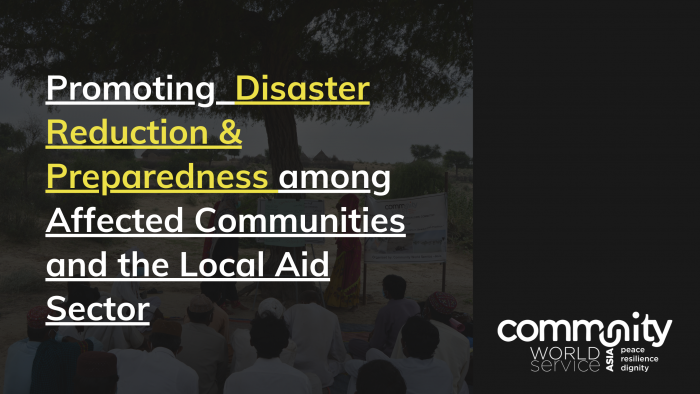









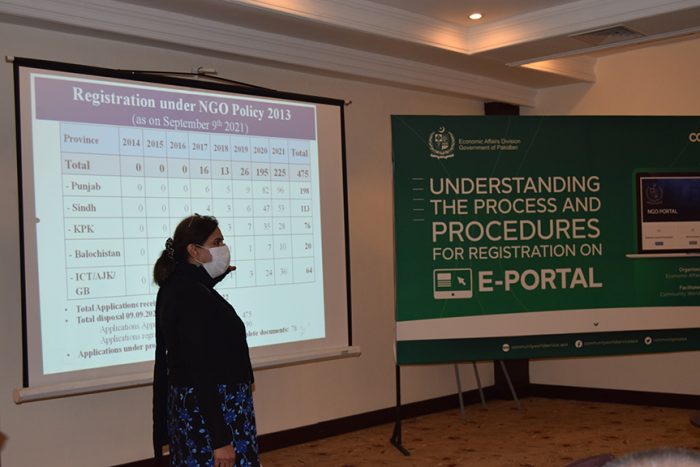

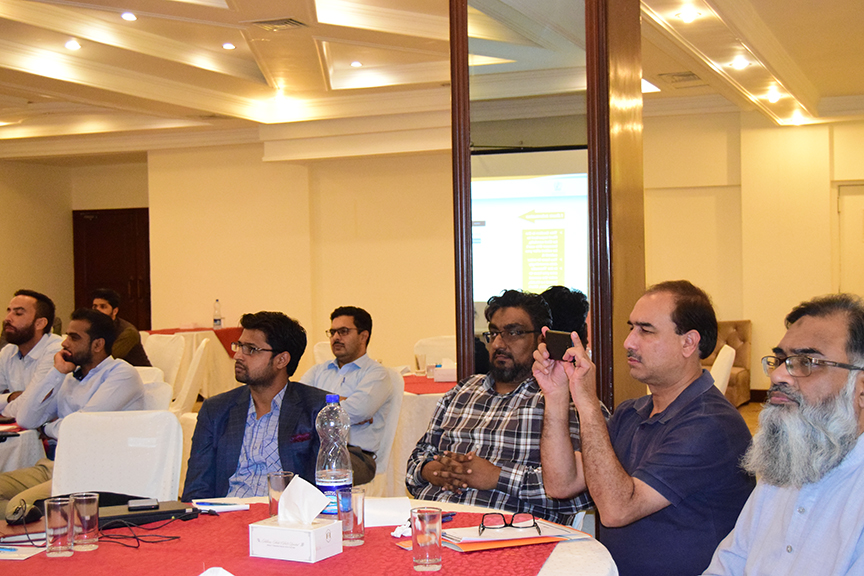
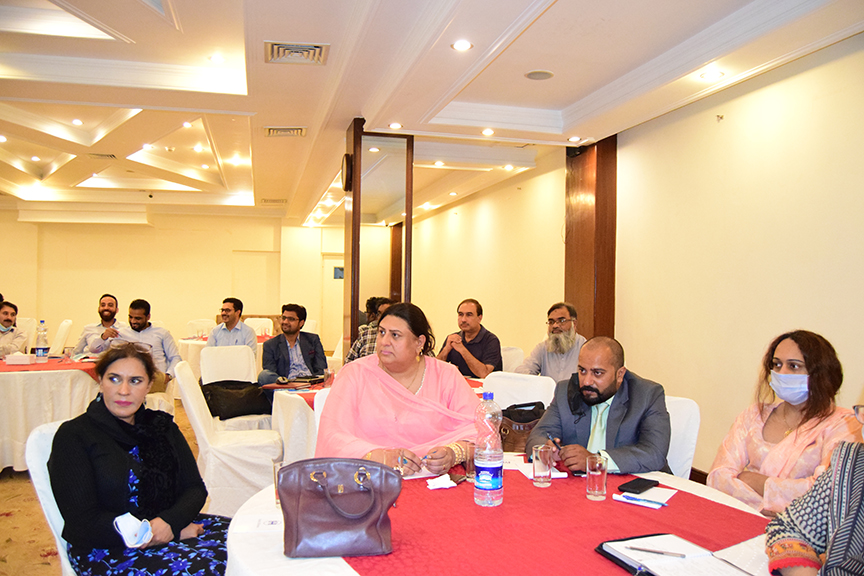
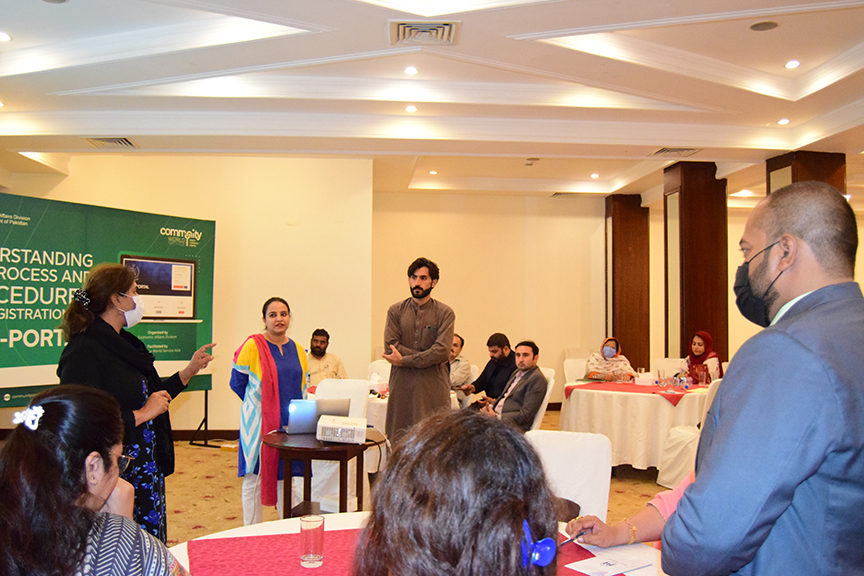
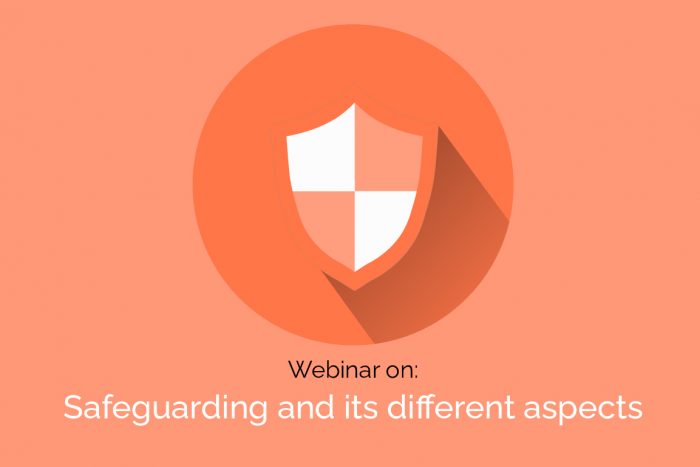
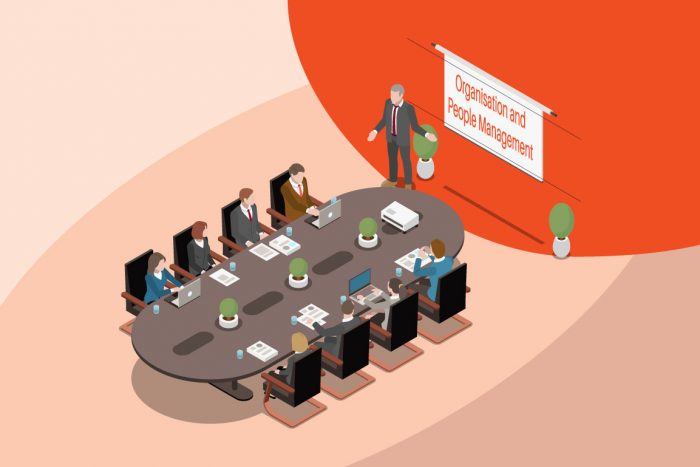
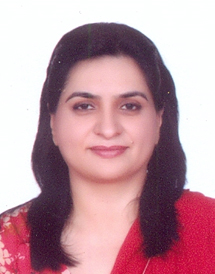 Ms. Sofia Noreen is an ambitious professional with over 28 years’ eventful career studded with brilliance predominantly in the area of research, program/ project designing and execution, monitoring, international development, and liaison & coordination. Her areas of focus include Gender and Women Empowerment, Climate Change/ Food Security within rural communities, and Governance issues both at policy and implementation levels. She is a dependable professional with a comprehensive understanding of Pakistani politics, the parliamentary setup, and electoral reform agenda and familiar with election management systems both for general and local bodies elections.
Ms. Sofia Noreen is an ambitious professional with over 28 years’ eventful career studded with brilliance predominantly in the area of research, program/ project designing and execution, monitoring, international development, and liaison & coordination. Her areas of focus include Gender and Women Empowerment, Climate Change/ Food Security within rural communities, and Governance issues both at policy and implementation levels. She is a dependable professional with a comprehensive understanding of Pakistani politics, the parliamentary setup, and electoral reform agenda and familiar with election management systems both for general and local bodies elections.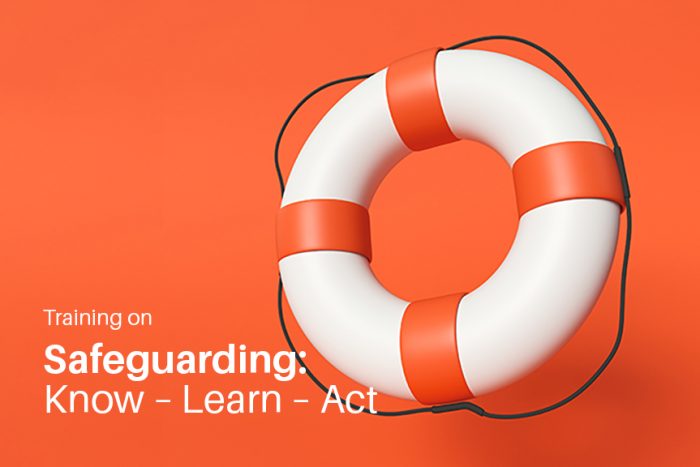
 Palwashay Arbab – Head of Communications and Gender Justice Focal Person- CWSA. A journalism and humanitarian practitioner associated with the aid sector in the Asia Pacific region since the last ten years. Has a diverse experience based on humanitarian work, journalistic writing, humanitarian and development communication, social media management, advocacy, training management, fundraising, branding and public relations, program development, gender justice and coordination. Training and presentation development experience for youth and staff on social media campaigns, hashtag activism, diversity and safeguarding. Representational and networking experience with the international donor community, I/NGOs, and communities. Currently co-chairing the global Gender Justice Reference group of ACT alliance and governing board member of the Communicating with Disaster Affected Communities (CDAC) Network.
Palwashay Arbab – Head of Communications and Gender Justice Focal Person- CWSA. A journalism and humanitarian practitioner associated with the aid sector in the Asia Pacific region since the last ten years. Has a diverse experience based on humanitarian work, journalistic writing, humanitarian and development communication, social media management, advocacy, training management, fundraising, branding and public relations, program development, gender justice and coordination. Training and presentation development experience for youth and staff on social media campaigns, hashtag activism, diversity and safeguarding. Representational and networking experience with the international donor community, I/NGOs, and communities. Currently co-chairing the global Gender Justice Reference group of ACT alliance and governing board member of the Communicating with Disaster Affected Communities (CDAC) Network.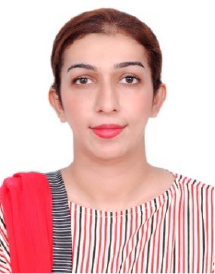 Asma Shehzad –Head of Support Functions- Safeguarding Focal Person-CWSA with more than 15 years of experience in Management including Organizational Policy development, conflict management, investigations, policies implementation, Asma has been now working with Community World Service Asia as Head of Support Functions. She is currently based in Islamabad, Pakistan. Asma is not only involved actively in the implementation of Safeguarding Policy at the organizational level with all stakeholders, she also acts as a Safeguarding Focal Person for CWSA. Being head of Support Functions Department, she is fulfilling her responsibilities in the development and implementation of policies to the best of her abilities. To her credit is the honor to be part of the team that has implemented Safeguarding Policy across CWSA. She also feels privileged to be part of Act as Co-Chair for Act Community of Practice- Safeguarding.
Asma Shehzad –Head of Support Functions- Safeguarding Focal Person-CWSA with more than 15 years of experience in Management including Organizational Policy development, conflict management, investigations, policies implementation, Asma has been now working with Community World Service Asia as Head of Support Functions. She is currently based in Islamabad, Pakistan. Asma is not only involved actively in the implementation of Safeguarding Policy at the organizational level with all stakeholders, she also acts as a Safeguarding Focal Person for CWSA. Being head of Support Functions Department, she is fulfilling her responsibilities in the development and implementation of policies to the best of her abilities. To her credit is the honor to be part of the team that has implemented Safeguarding Policy across CWSA. She also feels privileged to be part of Act as Co-Chair for Act Community of Practice- Safeguarding.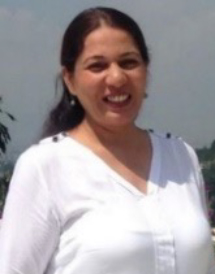 Ayesha Hassan – Associate Regional Director Head – CWSA Ayesha Hassan is the Associate Director at the Community World Service Asia with a diverse experience of campaigning and project implementation on Quality and Accountability (including Safeguarding, PSEAH, Complaints Response Mechanism), Gender, Livelihood (including food security with focus on DRR), Education, and Participation. She is a trainer, advisor and voice for Quality and Accountability standards including Core Humanitarian Standards, Do No Harm Approach, and Sphere Standards.
Ayesha Hassan – Associate Regional Director Head – CWSA Ayesha Hassan is the Associate Director at the Community World Service Asia with a diverse experience of campaigning and project implementation on Quality and Accountability (including Safeguarding, PSEAH, Complaints Response Mechanism), Gender, Livelihood (including food security with focus on DRR), Education, and Participation. She is a trainer, advisor and voice for Quality and Accountability standards including Core Humanitarian Standards, Do No Harm Approach, and Sphere Standards.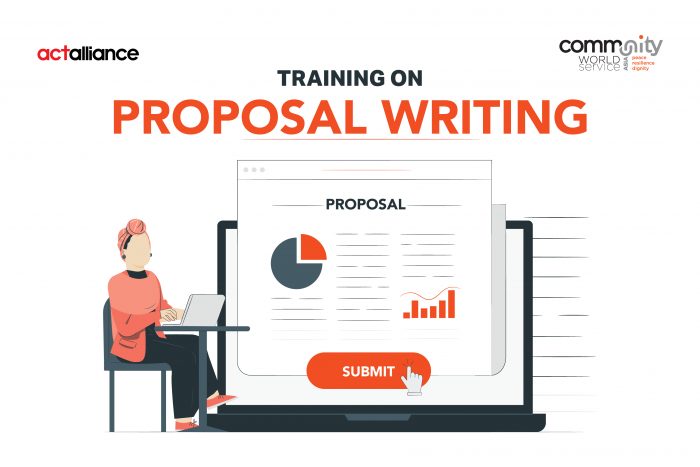
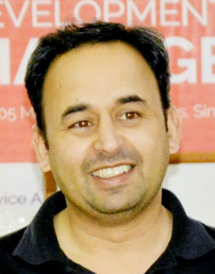 Mr. Khurram Saeed is working with Community World Service Asia and leading the Quality and Accountability program. He has over 10 years of experience in capacity enhancement support, project management, coordination & networking. He holds hands on experience in promoting Quality and Accountability and applying project cycle including assessing, designing, implementing, reviewing and evaluating projects in humanitarian and development context. He remained extensively involved in designing and carrying out humanitarian/development capacity enhancement interventions in participatory manner including development of strategies, training manuals and training events.
Mr. Khurram Saeed is working with Community World Service Asia and leading the Quality and Accountability program. He has over 10 years of experience in capacity enhancement support, project management, coordination & networking. He holds hands on experience in promoting Quality and Accountability and applying project cycle including assessing, designing, implementing, reviewing and evaluating projects in humanitarian and development context. He remained extensively involved in designing and carrying out humanitarian/development capacity enhancement interventions in participatory manner including development of strategies, training manuals and training events.